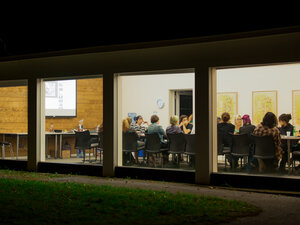Barbara Alfano: Related Content

Article
While students embark on Field Work Term, an annual work-learning term during which students gain hands-on experience and test their classroom ideas in the world of work, Bennington faculty and staff offer their reading recommendations to keep everyone’s intellectual juices flowing wherever they are.
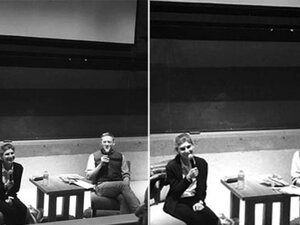
Article
Barbara Alfano spoke with alumna Ann Goldstein '71 about her translating for Elena Ferrante.
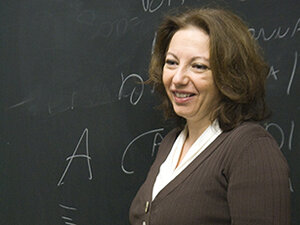
Article
Meet faculty member Barbara Alfano, who is teaching Exploring Otherness and Friendship: HBO's My Brilliant Friend as part of the Bennington Early College Program.
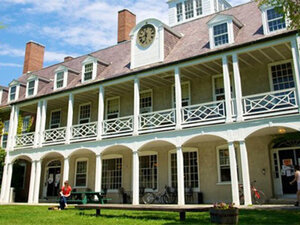
Article
Bennington College has received a $300,000 two-year grant from the Davis Educational Foundation, which will support restructuring the academic leadership team to strengthen the student experience.

Article
While students embark on Field Work Term, an annual work-learning term during which students gain hands-on experience and test their classroom ideas in the world of work, Bennington faculty and staff offer their reading recommendations to keep everyone’s intellectual juices flowing wherever they are.
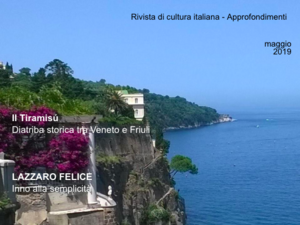
Article
During Spring 2019, Barbara Alfano’s Italian students capped off their term with the creation of the third issue of Occhio all’Italia, a yearly magazine devoted to Italian culture.

Article
While students embark on Field Work Term, an annual work-learning term during which students gain hands-on experience and test their classroom ideas in the world of work, Bennington faculty offer their reading recommendations to keep everyone’s intellectual juices flowing wherever they are.
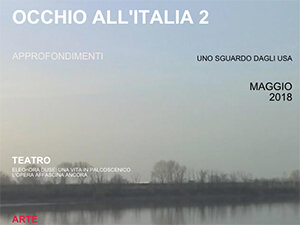
Article
During Spring 2018, the students of Barbara Alfano’s class Unlocking Italian Culture II capped their second term of elementary Italian with the creation of the second issue of Occhio all’Italia.
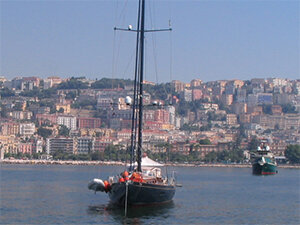
Article
During Spring 2017, the students of Barbara Alfano’s class Unlocking Italian Culture II capped their second term of elementary Italian with the creation of an original magazine: Occhio all’Italia.
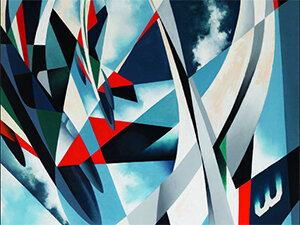
Article
All’inizio del diciannovesimo secolo, il futurismo italiano, che veniva lanciato nel 1909 con il primo manifesto di Filippo Tommaso Marinetti, sembrava all’apice dell’arte avanguardista. Anche oggi, quando si pensa alla storia dell’arte e alla letteratura, il futurismo si distingue per il suo estremismo. Il futurismo si costituisce sul desiderio di cambiare il mondo distruggendo tutte le cose legate al vecchio modo di pensare e creare. Secondo i futuristi, il mondo in realtà è cambiato ed è dovere dell’artista di rappresentare fedelmente questo cambiamento.
–Nicole Gounalis
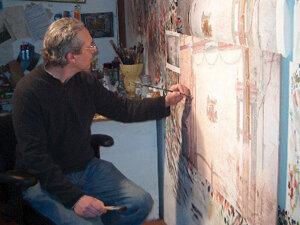
Article
It is at times the difficult search for understanding of cultural identity that brings artists to a stronger understanding of themselves and their work; their fragmented discoveries merit consideration of how they are externally perceived by the culture in which they have come to exist or identify, of how they choose to internally interpret shifting cultural identity, and of how all of this can affect artistic practice. My analysis is therefore an exploration of displacement, an attempt to dismantle the internal struggle of the individual, specifically of artists who are either Italian immigrants or Italian-American and who have been physically or metaphorically displaced from their homeland. The argument considers artistic interpretation of cultural identity at a physical and emotional remove, and looks historically to failed nationalist art movements in Italy.
—Anya Smith

Article
My final project in the class America in Italy was a paper looking at relations between the United States and Italy by analyzing characters of a book, Vita by Melania Mazzucco, and a documentary about Italian immigration called Finding the Mother Lode by director-couple Gianfranco Norelli and Suma Kurien. I focused on the stories of women and connected their situations through my thesis, which was that female immigrants that had freed themselves from men were able to find independence and success. The relationship between characters from the book and from the documentary was interesting, and the importance of education for immigrants and especially for immigrant girls seemed to be the most important thing to emancipate the entire family.
–Lucia Pompetti
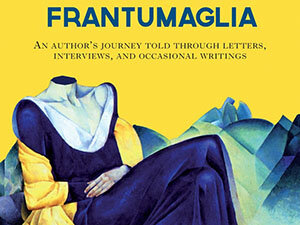
Article
Barbara Alfano published an essay on Elena Ferrante’s La Frantumaglia: A Writer's Journey, in Stanford’s Arcade in response to Claudio Gatti's exposé of Elena Ferrante’s identity.
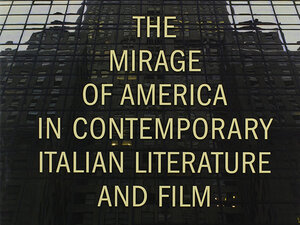
Article
Faculty member Barbara Alfano’s new book, The Mirage of America in Contemporary Italian Literature and Film, examines the use of images associated with the U.S. in Italian novels and films released between the 1980s and the 2000s. The book explores how the individuals portrayed in these works—and the intellectuals who created them—confront the cultural construct of the American myth.
